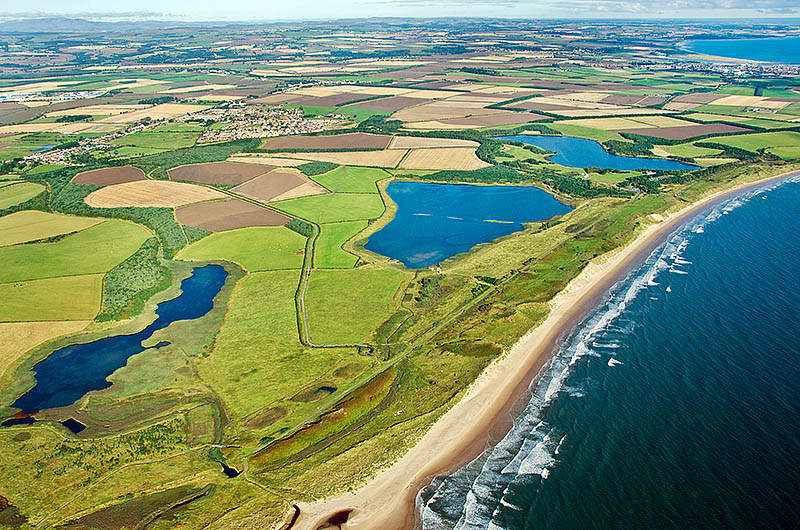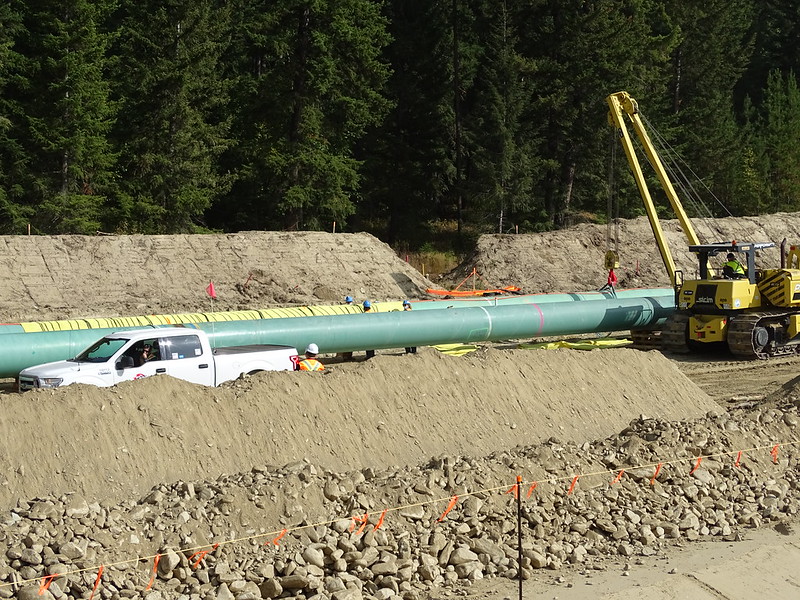North East England is facing the threat of another opencast coal mine, which could extract up to 800,000 tonnes of coal from beneath agricultural land on the border between Newcastle and Northumberland.
Banks Group, a developer based in Durham, plans to submit a planning application for Dewley Hill mine in the coming weeks. The same company is behind the plans for two other coal mines in the North East: the Highthorn mine alongside Druridge Bay and the recently commenced Bradley mine in Dipton, south west of Newcastle.
While Banks submitted a preliminary planning notice to Newcastle Council in 2016, anti-coal campaigners say that the company’s decision to submit a full application came sooner than they had anticipated.
“It’s probably tied into the fact that they know there’s a lot of risk around the Bradley site and the potential to mine at Druridge, so they want to have another one ready,” said Scarlet Hall of the Coal Action Network. “We don’t know how fast it will move, but it might move quickly given that there’s a big shift away from opencast coal, and Banks are trying to get the last round of cash they can before the industry [shuts down].”
Banks has partnered with Ibstock Bricks to extract 400,000 tonnes of fireclay, as well as coal, from the mine. The clay would be used to manufacture bricks.
The Highthorn and Bradley mines have faced legal challenges and protests from local residents, with campaigners concerned that the developments don’t fit with the government’s plans to tackle climate change. In particular, Banks’ plans to extract millions of tonnes of coal from the north east has been criticised as being incompatible with the UK’s pledge to phase out coal-fired power stations by 2025.
Banks Group argues that ramping up production in the UK could reduce reliance on foreign imports of coal, and that most coal would be used in the production of steel and cement, rather than for power generation.
“Imports of coal from Russia increased by over 730,000 tonnes between the first quarters of 2017 and 2018 to make up for the shortfall in UK production, which is almost as much as would be produced at Dewley Hill in total,” said Jeannie Kielty, Banks Group’s Community Relations Manager said in a statement.
The final decision over whether to mine at Druridge Bay lies with Communities Secretary James Brokenshire. While work is already underway at the Bradley mine, the long-term future of the project is subject to a review by Brokenshire, after the government conceded the original decision-making process was flawed.
Government lawyers said that Brokenshire aimed to reassess the decision on Bradley within 35 days, with a decision due on 25 February 2019. Campaigners say that, if he fails to meet this deadline within five days of this deadline, they will take the government to court to force a decision.
Today, campaigners handed a petition signed by 55,000 supporters to Brokenshire, demanding an end to work at Bradley and a stop to new opencast coal mines altogether.
“It’s particularly urgent because the Banks mining group are coming to the end of the first stage of work,” said Hall. “They are very soon going to start doing blasting and soil stripping to start the next area. We’re really keen that, if a new decision is going to be made and if there’s a chance that it will go our way, it needs to happen before they strip away all of the life from the valley, because the topsoil is so vital.”
Image: iancook57/Flickr, CC-by-2.0
Subscribe to our newsletter
Stay up to date with DeSmog news and alerts







